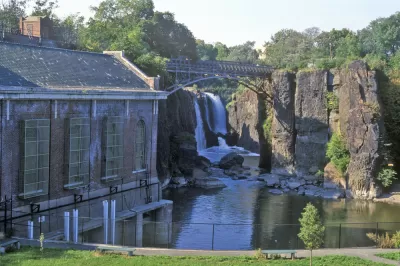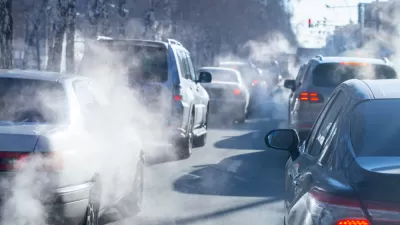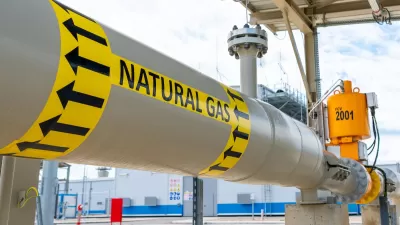Hydroelectric generation itself doesn’t produce greenhouse gases, but it does rely on the creation of reservoirs that release methane into the air.

A forthcoming study from Washington State University finds that reservoirs—including those created by hydroelectric dams—might produce 25 percent more greenhouse gas emissions than previously thought.
As CrossCut points out, "this could have implications for regions like the Northwest, which rely on hydroelectric power to meet its power demands."
The study looked at other man-made reservoirs as well, such as those used for drinking water and irrigation. Its findings may be surprising:
When all those man-made water bodies are added up, their combined emissions make up 1.5 percent of the world’s greenhouse gas pollution.
Put another way, if reservoirs were a country, they’d be the 8th largest emitter of greenhouse gasses like methane and carbon dioxide.
FULL STORY: WSU: Hydropower dams contribute to climate change

Alabama: Trump Terminates Settlements for Black Communities Harmed By Raw Sewage
Trump deemed the landmark civil rights agreement “illegal DEI and environmental justice policy.”

Planetizen Federal Action Tracker
A weekly monitor of how Trump’s orders and actions are impacting planners and planning in America.

The 120 Year Old Tiny Home Villages That Sheltered San Francisco’s Earthquake Refugees
More than a century ago, San Francisco mobilized to house thousands of residents displaced by the 1906 earthquake. Could their strategy offer a model for the present?

Ken Jennings Launches Transit Web Series
The Jeopardy champ wants you to ride public transit.

BLM To Rescind Public Lands Rule
The change will downgrade conservation, once again putting federal land at risk for mining and other extractive uses.

Indy Neighborhood Group Builds Temporary Multi-Use Path
Community members, aided in part by funding from the city, repurposed a vehicle lane to create a protected bike and pedestrian path for the summer season.
Urban Design for Planners 1: Software Tools
This six-course series explores essential urban design concepts using open source software and equips planners with the tools they need to participate fully in the urban design process.
Planning for Universal Design
Learn the tools for implementing Universal Design in planning regulations.
Clanton & Associates, Inc.
Jessamine County Fiscal Court
Institute for Housing and Urban Development Studies (IHS)
City of Grandview
Harvard GSD Executive Education
Toledo-Lucas County Plan Commissions
Salt Lake City
NYU Wagner Graduate School of Public Service





























